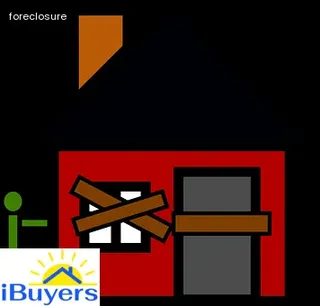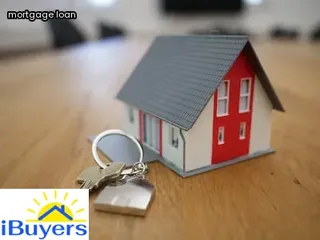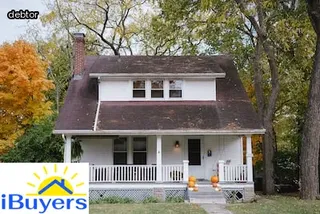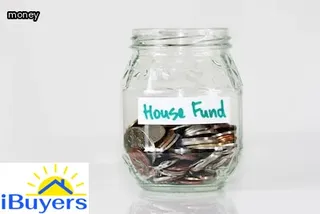Foreclosure is a process in which a homeowner's right to their property is taken away by the lender due to non-payment of the loan. This usually happens after a period of missed payments and can have serious financial and legal repercussions.
In order to understand foreclosure, it is important to first understand what constitutes a foreclosure and the legal process that it entails. Additionally, it is important to know the ways in which homeowners can avoid foreclosure.
Though there are no guaranteed methods that will guarantee avoidance, there are steps that can be taken to prevent foreclosure from happening. It is essential for homeowners facing financial distress to be aware of the options available to them in order to make an informed decision about their future.

Foreclosure is a process in which a lender takes possession of a property from the borrower when they are not able to make payments on their loan. There are many factors that can lead to foreclosure, however the primary cause is usually financial hardship or an inability to make mortgage payments.
Other common reasons for foreclosure include job loss, high levels of debt, illness or injury that results in lost income, divorce, death of a loved one, and even military service. In some cases, homeowners may be unable to pay their mortgage because of unexpected events such as natural disasters or unexpected repairs that need to be made on the home.
It is important to understand your personal financial situation and be aware of the potential risks associated with homeownership in order to avoid foreclosure.
Foreclosure is a complex process involving many steps. The first stage of foreclosure is when the homeowner defaults on their mortgage payments and the lender files a Notice of Default.
This is typically followed by a public auction where the home is sold to the highest bidder. If no bids are received, then the lender will take back possession of the property, known as a "repossession".
Next, the lender will either sell or rent out the property in an effort to recoup their losses. Finally, if all other attempts fail, they may file for foreclosure in court which will result in an order to vacate and a final sale of the property.
Understanding each stage of foreclosure can help individuals avoid falling into this situation as well as find ways to get out of it once they are in it.

There are several types of foreclosures that can occur when a homeowner fails to make their payment on time. The most common type is a judicial foreclosure, which requires the lender to take the borrower to court in order to obtain the title of the home.
A non-judicial foreclosure happens outside of the court system, allowing lenders to repossess homes more quickly without having to go through lengthy legal proceedings. Short sale foreclosures occur when lenders agree to accept less money than what is owed on the loan if the homeowner is unable to make their payments.
Lastly, deed-in-lieu foreclosures involve homeowners turning over their deed and relinquishing ownership rights in exchange for not having their credit affected as negatively as it would be with other types of foreclosure processes. Understanding these different types of foreclosures will help people make informed decisions about how they handle delinquent mortgage payments and avoid facing foreclosure in the future.
Foreclosure is an incredibly difficult process to endure both financially and emotionally. To avoid going through foreclosure, it is important to understand why it happens in the first place.
Common reasons for entering foreclosure include job loss, illness or injury, divorce, or an increase in mortgage payments that make them unaffordable. Other factors such as poor budgeting can also lead to homeowners not being able to keep up with their payments.
It is essential to have a plan in place should any of these circumstances arise. Building an emergency fund, working on creating a budget that allows for savings each month, and understanding what options are available if a homeowner finds themselves in financial distress can help prevent foreclosure from occurring.
Being aware of how much home one can realistically afford is also vital when considering taking out a mortgage. Ultimately, preparing for the unexpected and having knowledge of financial resources available can be the difference between avoiding foreclosure or facing it head-on.

Foreclosures can have devastating consequences beyond a tarnished credit score and the loss of a home. The process of foreclosure also involves legal fees, court costs, and other expenses that can add up to thousands of dollars in debt.
Foreclosure can also put stress on relationships with family members or friends who may have cosigned or guaranteed a loan. In some cases, foreclosures may result in wage garnishment or civil judgments if there is an outstanding balance after the home has been sold.
Additionally, future homeownership opportunities may be limited due to the foreclosure appearing on credit reports for seven years. It is important to understand all potential outcomes of foreclosure before taking action.
Foreclosure can have a devastating financial impact on the homeowner. Not only does it mean losing the home, but it also affects credit scores and can make it difficult to secure financing in the future.
In addition to an immediate loss of equity, homeowners may be liable for any remaining balance on the loan after foreclosure. This is due to deficiency judgments, which allow lenders to recover losses if they do not recoup their full investment at auction.
Furthermore, homeowners are often responsible for paying fees associated with legal processes such as court costs and attorney fees. Lastly, foreclosure can cause a significant tax burden as any forgiven debt is considered taxable income by the IRS.
Therefore, it is important to understand all of the potential financial implications before deciding whether or not to proceed with foreclosure.

The foreclosure process can be difficult to understand, but there are alternatives that can help homeowners prevent their property from being taken. One such alternative is loan modification.
With this option, borrowers work with their lenders to adjust the terms of the loan in order to make payments more affordable. This could involve reducing the interest rate, extending the loan term, or both.
Another viable option is a repayment plan. Homeowners can enter into an agreement with the lender to pay off past due payments over a specific period of time, often within three years.
If neither of these options works for the homeowner, they may consider selling their home as a short sale or deed-in-lieu of foreclosure. The former allows homeowners to sell their property for less than what they owe on the mortgage and use proceeds from the sale to pay off debt while still avoiding foreclosure.
The latter option involves transferring ownership of the home back to the lender without requiring a sale, thus eliminating any deficiency balance that may remain after a traditional sale.
Mortgage repayment is a fundamental part of understanding foreclosure and how to avoid it. Knowing your mortgage repayment process and timeline is critical for keeping up with payments and staying ahead of defaulting on a loan.
The first step in the mortgage repayment process is determining the payment amount which is based on the principal balance, interest rate, and loan duration. The payment schedule will vary depending on whether you have a fixed-rate or adjustable-rate mortgage.
Fixed-rate mortgages remain at the same interest rate throughout the loan’s duration while adjustable-rate mortgages can change over time; both have different payment schedules. Depending on the types of loans available, borrowers can choose between bi-weekly or monthly payments; however, most lenders require monthly payments as they are more convenient for tracking payments.
Payments should be made on time each month to ensure that no late fees are incurred and that adequate funds are available to pay off the loan by its maturity date when all principal and interest amounts should be paid in full. Understanding the mortgage repayment process and timeline is essential for avoiding foreclosure as well as maintaining good credit.

Intervening early in the home foreclosure process may offer numerous benefits to homeowners, including increased chances of successful negotiation with lenders, improved long-term financial outcomes, and access to counseling services. Taking immediate action can help borrowers better understand their options and develop an effective plan for addressing the foreclosure.
For instance, homeowners may be able to negotiate a payment plan or loan modification if they are able to demonstrate that their current financial situation is temporary and that they will be able to make payments once it improves. Additionally, early intervention can give borrowers access to resources such as free legal assistance, budgeting advice, debt counseling, and other support services which can help them avoid foreclosure altogether.
Ultimately, with the right tools and knowledge at hand, homeowners facing foreclosure have greater opportunities for retaining ownership of their property.
There are a variety of resources available to help homeowners make mortgage payments and avoid home foreclosure. One of the best ways to stay ahead of the game is to ensure that you understand all aspects of the foreclosure process, including its definition and timeline.
It’s important to know what your rights are as a homeowner so that you can work with lenders on a plan to keep your home. The first step is often seeking help from a HUD-approved housing counselor who can provide advice about potential options for staying in your home.
This could include loan modifications, refinancing, or other strategies that may allow you to remain in your home and avoid foreclosure. Additionally, some states offer financial assistance programs that can help homeowners pay their mortgage or reduce their loan payments.
Lastly, it’s important to be aware of any scams out there; if something sounds too good to be true, it usually is!.

If you are facing home foreclosure, there are several steps that you can take to try to avoid the process. First, it is important to understand what a foreclosure is and how it works.
A foreclosure occurs when a homeowner defaults on their mortgage payments and the lender takes legal action to repossess the property. The process typically begins with an official Notice of Default being issued to the homeowner by the lender.
After this, there may be more notices sent, including a Notice of Sale or a Notice of Trustee's Sale. Once these notices are issued, the homeowner has limited time to make arrangements in order to prevent foreclosure from occurring.
One way that homeowners can attempt to avoid foreclosure is by trying to negotiate with their lender for forbearance or repayment plans that can help them become current on their mortgage payments. Another option is seeking assistance from government agencies or non-profit organizations which offer housing counseling and other types of financial assistance.
Homeowners should also consider selling their homes before allowing them to go into foreclosure as this will allow them greater control over the process and could potentially result in less damage to their credit score.
Filing for bankruptcy can have a profound effect on the foreclosure process. Bankruptcy is an important tool that can be used to help save homes, and it may provide a temporary reprieve from foreclosure proceedings.
Depending on the individual's situation and the type of bankruptcy they file, they may be able to stop or delay a foreclosure sale, and even eliminate some of their debt. Chapter 7 bankruptcies can result in some debts being discharged, while under Chapter 13 bankruptcies, individuals may be able to reorganize their debt and pay off what they owe over time.
In either case, filing for bankruptcy can be complicated and should only be done with the guidance of an experienced professional who is familiar with foreclosure laws. In addition to filing for bankruptcy, there are other options that can help people avoid foreclosure such as loan modifications, forbearance agreements and short sales.
All of these alternatives should be discussed with a qualified professional before taking any action.

When facing the possibility of foreclosure on a home, it is important to understand the type of insurance coverage available. Homeowner's insurance may help protect against damages caused by events such as fire, lightning, or theft.
However, this type of policy does not cover a homeowner if they fall behind in their mortgage payments and eventually face foreclosure. Mortgage protection insurance is another option for homeowners facing potential foreclosure.
This type of policy helps to make mortgage payments when the homeowner cannot due to an illness or job loss. The protection covers up to 12 months of mortgage payments and can also provide extra funds to help with relocation costs when a home is lost through foreclosure.
Knowing what options are available in terms of insurance coverage can be beneficial for any homeowner struggling with the possibility of foreclosure.
When a home goes into foreclosure, there can be serious tax implications for the homeowner. Foreclosures are reported to the IRS, and as a result, the homeowner may be taxed on any forgiven debt from the foreclosure.
Additionally, the homeowner could face a tax bill for any income received from selling the home in a short sale or after foreclosure. In these instances, usually the difference between what was owed on the mortgage and what was received from selling is considered taxable income by the IRS.
It is important for homeowners to understand their tax liabilities if they are facing foreclosure or have already gone through with it in order to avoid any potential financial penalties or issues down the road.

Reinstating a loan after going through the foreclosure process can be a difficult and daunting task, but it is possible. It is important to understand that while a foreclosure will remain on your credit report for seven years, that doesn't mean you won't be able to access financing in the future.
To reinstate your loan, you must first contact your lender and discuss their options for reinstatement. Generally, this involves paying back the full amount of the delinquent payments along with any additional fees or costs associated with foreclosure proceedings.
You may also have to pay interest on the outstanding balance. Alternatively, some lenders may offer other repayment plans such as refinancing or loan modifications which could reduce your monthly payments and make them more manageable.
Taking action soon after missing payments can help reduce the amount of time and money needed to reinstate your loan. Knowing what options are available before you fall behind on payments can also help avoid foreclosure altogether by allowing you to take proactive steps towards keeping your home.
Selling a house during pre-foreclosure is a difficult process, but it can be done with the right strategies. During a short sale or deed in lieu of foreclosure, 18 strategies can be used to maximize the equity of homeowners.
These strategies include researching market trends and pricing the home competitively, as well as marketing the home proactively and seeking out potential buyers. It's also important to understand any rights and responsibilities in a post-foreclosure environment to ensure all parties are protected.
Finally, renters who are facing foreclosure should explore all their options, including applying for rental assistance programs and relocation services that can help them find affordable housing. With these tips in mind, selling a house during pre-foreclosure can be made easier and more successful.
Foreclosure is a process wherein a lender attempts to recover the balance of a loan from a borrower who has defaulted on payments. The foreclosure process usually involves five stages: Notice of Default, Auction Sale, Judicial Foreclosure, Eviction/Deficiency Judgment, and Reinstatement or Repayment Plan.
In the first stage—the Notice of Default—the lender informs the borrower that they are in default of their mortgage payments and outlines the steps necessary for them to cure the loan and avoid further action. Following that, if no payment is made within the specified time period, an auction sale may be scheduled where a third-party buyer can purchase the home at market value.
After the auction sale, if there is still an outstanding balance on the loan, then a judicial foreclosure may be initiated by filing suit against the homeowner. This step can result in either an eviction or deficiency judgment depending on whether or not enough money was raised during the auction sale to satisfy the mortgage debt.
Finally, after all other options have been exhausted, homeowners may be able to work out a repayment plan with their lender or reinstate their loan if they can prove that they have sufficient funds available to make up all missed payments plus additional costs associated with foreclosure proceedings. By understanding these five stages of foreclosure action and taking proactive steps such as seeking financial advice or refinancing an existing loan prior to defaulting on payments, homeowners can protect themselves from this devastating experience.

A foreclosure is the legal process in which a lender reclaims a property from a borrower who has failed to make their mortgage payments. It is the result of a lengthy process that begins when the borrower defaults on their loan and ends with the lender taking ownership of the property.
Foreclosure is an unfortunate situation for both parties involved, as it can have serious financial consequences for the borrower and may cause them to lose their home. Fortunately, there are some steps that borrowers can take to try and avoid foreclosure, such as making sure they are up-to-date on mortgage payments and working with lenders to come up with more affordable repayment plans.
Understanding the definition, process, and ways to avoid foreclosure can help borrowers stay in control of their finances and keep their homes safe.
The purpose of a foreclosure is to allow a lender to reclaim the mortgaged property from the borrower when they are unable to make payments. Foreclosure is a legally binding process that allows lenders to take possession of the property and liquidate it in order to repay the amount owed on the mortgage.
The proceeds from the sale of the property are used to pay off any outstanding debts and fees associated with the foreclosure process. By foreclosing on a home, lenders can recoup their losses and protect their investments.
Foreclosures can also prevent borrowers from falling further into debt, as they will no longer be responsible for making payments on a mortgage they cannot afford. Understanding foreclosure and its purpose is essential for homeowners who are at risk of defaulting on their mortgages, as it can help them explore options in order to avoid this difficult situation.
Buying a foreclosed home can be a great way to save money, but it’s important to understand the potential disadvantages that come along with the purchase. Foreclosures often require more repairs than non-foreclosed homes and can lead to additional costs that must be taken into consideration.
Additionally, the process of buying a foreclosure can be complex and may involve lengthy delays due to legal requirements. Finally, buyers may find themselves at risk of being scammed or misled without proper research and knowledge of the foreclosure process.
It is important for potential buyers to consider these risks carefully before deciding whether purchasing a foreclosure is right for them.
A: Foreclosure is the legal process by which a lender reclaims a borrower's property when they default on their mortgage payments. It allows lenders to recoup the money they loaned to the borrower in order to purchase the home.
A: Foreclosure is the legal process in which a lender takes ownership of a property due to its owner's inability to make mortgage payments. It typically involves a court order, public auction, and eviction of the homeowner. Ways to avoid foreclosure include working with lenders to modify loan terms, refinancing loans, and making timely payments.
A: When a homeowner defaults on a Mortgage Loan, the lender may initiate foreclosure proceedings to collect the unpaid balance. Depending on the situation and state laws, loan modification may be available as an alternative to foreclosure.